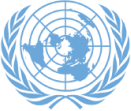Madame President,
Allow me to join the previous speakers in expressing our genuine appreciation for convening this important deliberation. We welcome your intention and readiness to guide and move the Security Council reform process forward, in spite of the existing difficulties.
I wish to extend our thanks to the Co-Chairs, H.E. Mrs. Lana, Ambassador of the United Arab Emirates, and H.E. Mr. Kaha, Ambassador of Georgia, for their active engagement and efforts in reforming the UN Security Council.
Madame President,
Aligning my delegation with the statement made by Ambassador Inga Rhonda, Permanent Representative of Saint Vincent and the Grenadines, on behalf of the L.69 Group, I would like to add a few remarks in our national capacity.
It is clear that the Security Council built in 1945 does not fit for the political realities of the 21st century. The current status quo does not serve the interest of the United Nations and multilateralism.
A little progress has been produced despite the 25-year-long efforts towards reforming the Security Council by establishing the Intergovernmental Negotiations on the question of UNSC Reform (IGN) in 2008 and its predecessor, the Open-Ended Working Group in 1993.
The Intergovernmental Negotiations have not yield concrete outcome although their sessions resulted in outcome documents, including the latest paper entitled “Revised Elements of Commonality and Issues for Further consideration”. In order to realize an early reform of the Security Council, an essential element of our overall effort to reform the United Nations, we should urgently commence text-based negotiations instead of convening unproductive circular discussions.
We are called to continue our efforts to achieve the objective of making the Security Council more broadly representative, efficient and transparent and thus further enhancing its effectiveness and the legitimacy and implementation of its decisions.
Madame President,
Taking this opportunity, let me reiterate Mongolia’s principled position concerning the Security Council reform on the following key issues. A just and equitable expansion in both permanent as well as non-permanent categories should be maintained. Our stance in favor of enlargement in both the current categories is guided by and based on the Charter-defined composition and reflective of contemporary realities as well as principles of justice and equality to ensure greater and enhanced representation of developing countries, particularly the non-represented and under-represented regional groups.
The veto should be abolished. The use of veto power should be restricted in the Security Council, in particular with regard to Chapter VII – related decisions. So long as the use of veto power exists, it should be extended to all new members of the permanent category of the Security Council, who must enjoy all the prerogatives and privileges of permanent membership in the permanent category, including the right of the veto.
Adequate representation of all regions, particularly non-represented and under- represented, in both categories of the Security Council must be duly considered. The solution ought to be fair and just. Thus, we attach high importance to the criterion of equitable geographical distribution through an emphasis on the non-represented and under-represented groups, particularly Africa, Asia and GRULAG.
As to the non-permanent category, strengthening fair and equitable rotation system within a geographical regional group is of high importance to my country. In that respect, my delegation also supports the allocation of additional seats to the current regional groups while ensuring the representation of small developing states.
I thank you.


